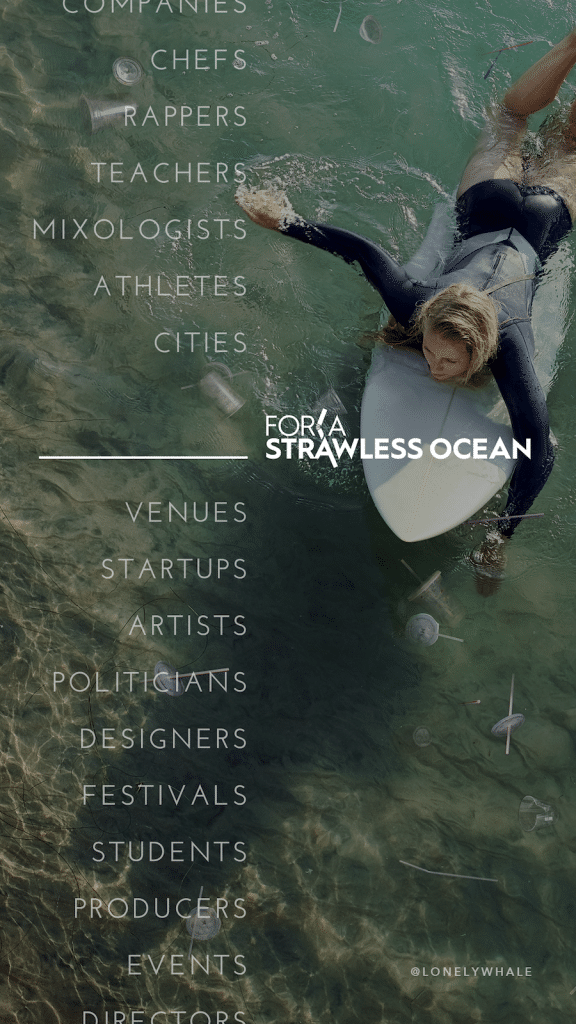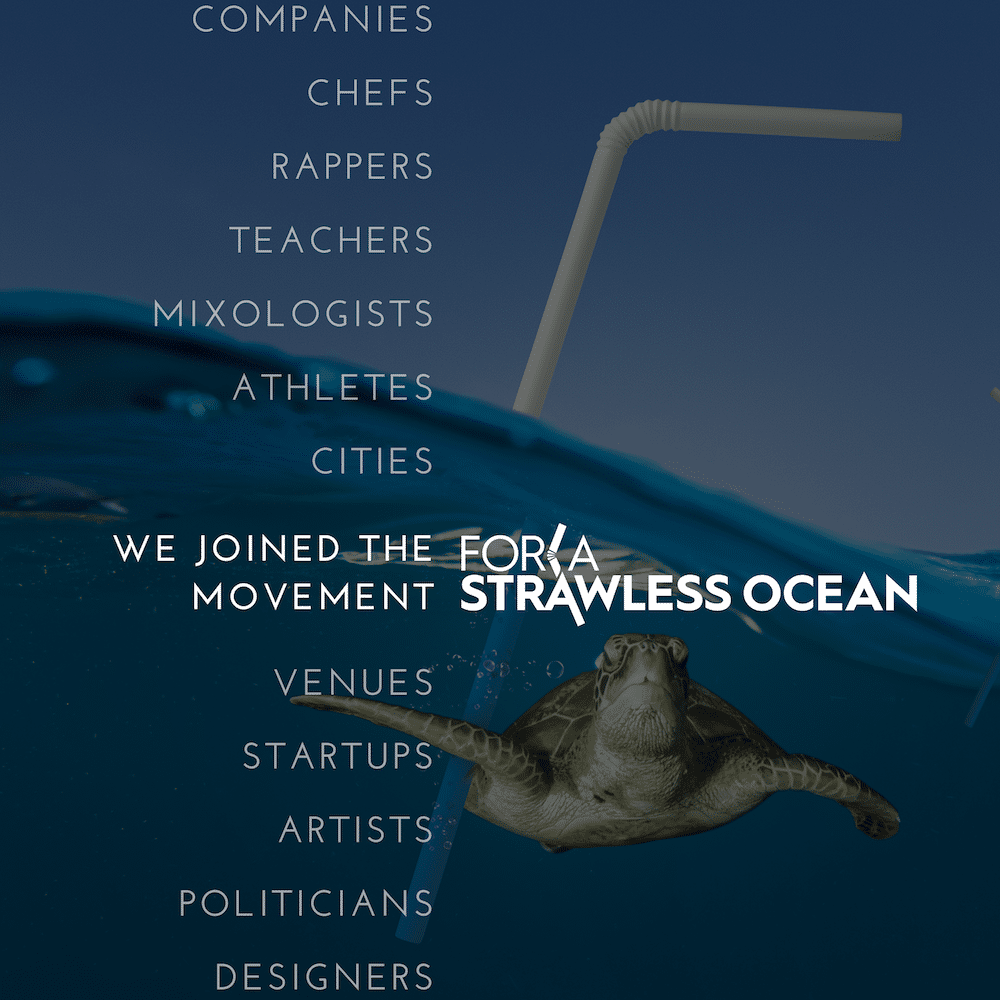Did you know that every piece of plastic ever made still exists today? Even as it breaks down it never actually biodegrades, but instead turns into smaller pieces known as microplastics. Causing injury and even death to marine life, one of the top 10 items picked up during beach clean-ups worldwide are plastic straws. Learn more about various types of plastic, the threat plastic products pose to our environment, and a couple of eco-friendly alternatives you can purchase today to reduce our use of plastic.
Eco-Friendly Alternatives
There are several eco-friendly alternatives that you can use in place of plastic. Below we have listed a few of our recommended substitutions:
Stainless Steel
Stainless steel products are durable, easy to clean and can save you money that you’d normally spend on disposable cups, straws, and containers.
Glass
Because glass is made from sand, you won’t have to worry about exposing yourself or your loved ones to harmful chemicals. Glass can be easily recycled and reused!
Mesh or Reusable Grocery Bags
Make your grocery shopping trips a breeze by bringing your own reusable totes or mesh bags. These are easy to store, washable, and you can say goodbye to the ridiculous amount of plastic bags that are currently taking up space in your kitchen cabinet.
Types of Plastic
Here are some facts about plastic that you may find useful!
Polyethylene Terephthalate
Polyethylene Terephthalate, or PETE for short, is one of the most commonly used plastics. According to research, “PETE plastics make up 96% of all plastic bottles and containers in the United States, yet only 25% of these products are recycled” (qualitylogoproducts.com). Here are just a few of the products made with polyethylene terephthalate include:
- Soda bottles
- Water bottles
- Medicine bottles
- Peanut butter and jelly jars
High-Density Polyethylene
High-Density Polyethylene (HDPE) is a thermoplastic that was first used to produce pipes but is now used to make items such as:
- Milk jugs
- Trash bags
- Containers
- Personal hygiene products (Shampoo and conditioner bottles, soap bottles, etc.)
Polyvinyl Chloride
This type of plastic has coined the nickname “Poison Plastic” because it contains lead, chlorine, phthalates, and a variety of other harmful toxins. Polyvinyl Chloride is a thermoplastic polymer that is commonly used in industrial products, including:
- Plumbing and sewage pipes
- Gutters
- Tiles
- Air ducts
Low-Density Polyethylene
Low-Density Polyethylene (LDPE) is one of the most widely produced plastic products worldwide. LDPE can be found in the following products:
- Plastic cling wrap
- Sandwich bags
- Grocery bags
Polypropylene
This plastic is produced in large quantities, but only a small percentage of these products are recycled. Polypropylene is used in diapers, your everyday kitchenware, yogurt and dairy containers, take-out containers, and more.
Polystyrene
Polystyrene, or Styrofoam, is incorporated in many products because it is lightweight and easy to mold. However, it’s flimsy structure allows for it to break off and make its way into sewers, rivers, and landfills. Styrofoam is used to make products like disposable cups, water bottles, and lighting fixtures.
Join Extended Horizons in the Fight to #StopSucking
In Extended Horizons’ continued efforts to become more sustainable, we are choosing to stop serving Capri Sun juices on the boat as part of our snack in between dives.
A bill to ban distribution and sale of plastic straws was introduced in Hawaii in January of 2017 but failed to clear due to objections from the Hawaii Food Industry Association of the Hawaii Restaurant Association, the Retail Merchants Association, and the American Chemistry Council. All throughout the Hawaiian Islands, hotels, restaurants, and charter companies have started taking responsibility in their own hands by switching to alternatives or only serve straws upon request.
Worldwide movements to reduce single-use plastics are popping up everywhere. Campaigns like “For a Strawless Ocean” are asking people to #stopsucking by remembering to order drinks without straws and encouraging others, especially businesses, to choose to refuse. Another alternative is purchasing one of these incredible reusable options, including straws made from paper, stainless steel, glass, and even bamboo. At Extended Horizons, we have been serving reusable water bottles on our trips for the past couple of years, and now we are happily announcing straw-free charters!

